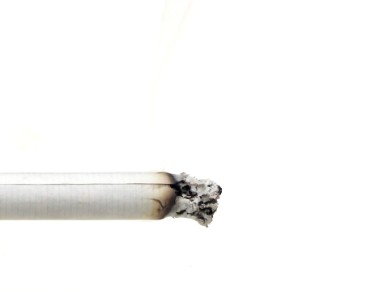Stop smoking in one session. "I found it difficult to
stop smoking and stay stopped. I speak from experience, I suffered cravings for
almost five years after quitting. Then I decided on hypnotherapy to put an end
to it. To this day the cravings are still gone and it is effortless to not
smoke." Catherine
"After smoking 20 a day for seven years, I managed to stop smoking in one session with Warren." Kirk We have all been there: you decide to have your last cigarette. This is it. You put it out. You go inside. Sometimes 6 months pass, sometimes only a few hours. You give in. Why? Our brain holds the secret. What if I could show you a way, that you could walk away from smoking without withdrawal, weight gain or irritability? What if it was more successful than any other method? What if there was evidence in a scientific journal? What would it be worth to you? Financial Costs of Smoking: 20 a day = R9000 a year 10 a day = R4500 a year 5 a day = R2250 a year Stop smoking in one session at Powerfulchange for R750.Make it Happen: Book an appointment by emailing: enquiries@powerfulchange.co.uk Or Call 0792 589 046
* "Hypnosis is the most effective way of giving up smoking",as reported by the New Scientist article of 1992 The above table based on
information in the book Stop Smoking in One Hour, by Valerie Austin
: published by John Blake Publishing, Please note that on this page the scientific research evidence for the success of hypnosis has been published in a recognised scientific journal (with the full reference given) and therefore has validity as scientific research within the scientific community. Unfortunately, a number of research figures on other sites fail to declare that their claims do not meet this criteria and it is suggested that you treat their figures and claims accordingly. Schmidt, F.L. & Viswesvaran, C. (1992). A Meta-Analytic Comparison of the Effectiveness of Smoking-Cessation. Journal of Applied Psychology, 77 (4), 554-561. The Journal of Applied Psychology is published by the American Psychological Association, America’s main professional association of psychologists. Cognitive reactions to smoking relapse by Elliot Wald, Tami J Eggelston PhD & Frederick Gibbson Ph. Article from New Scientist vol 136 issue 1845-31 October 92, page 6 Summary: Hypnosis has the
highest success rate of the top 15 methods of quitting smoking. The 15
methods were compared in an exhaustive meta-analysis of 633 scientific studies
of smoking-cessation programs. This was the largest study of its kind ever
undertaken and involved 71,806 smokers. To find the most effective way to give up smoking, Frank Schmidt and research student Chockalingam Viswesvaran of the University of Iowa carried out a meta-analysis, statistically combining the results of more than 600 studies covering almost 72,000 people from America, Scandinavia and elsewhere in Europe. By combining the results from so many separate studies, the meta-analysis enables the real effectiveness of each technique to be picked out from the statistical “noise” that often blights studies involving smaller numbers of subjects. For most smokers the most effective technique was hypnosis, in which smokers go into a state of deep relaxation and listen to suggestive tapes. The analysis of treatment by hypnosis, which included 48 studies covering over 6000 smokers, gave the highest average success rate for this method. Ten percent of the hypnosis programs had success rates greater than 60%. Sheer willpower had a success rate of only 6 per cent. Self-help, in the form of books achieved modest success - around 9 per cent, while nicotine gum was a little better at 10 per cent. David Pollock, director of ASH, said he was surprised by the success of hypnosis, which anecdotal evidence had suggested was not very effective. One organization not surprised by the results is the British Society of Medical & Dental Hypnosis. Christopher Pattinson, the society's academic chairman, said that current hypnosis techniques are a far cry from their popular image of music-hall tricks involving swinging fob watches. The latest relaxation techniques achieve success rates of up to 60 per cent from a single session, he said. Richard Doll, the epidemiologist who carried out the pioneering studies of the risk of smoking, said that the apparent success of hypnosis and the high quitting rate of patients with heart disease backed his own observations. He added, however, that he was somewhat surprised by the low success rate of those who resorted to willpower alone.
Wide ranges of variability were found in the success rates for all methods of quitting smoking. So regardless of what method of quitting smoking one chooses, the specific program needs to be selected very carefully.
|  You can look forward to: 1. Better skin 2. Healthier body 3. More energy 4. Saving time 5. Saving money 6. Better quality sex life 7. Better breath
 Reasons to quit: 1. Heart attack 2. Lung Cancer 3. Throat Cancer 4. Emphysema 5. Impotence 6. Skin problems 7. Increasingly antisocial
Associated costs of smoking: 20 a day = R9000 a year 10 a day = R4500 a year 5 a day = R2250 a year Stop smoking in one session at Powerfulchange = R850 |